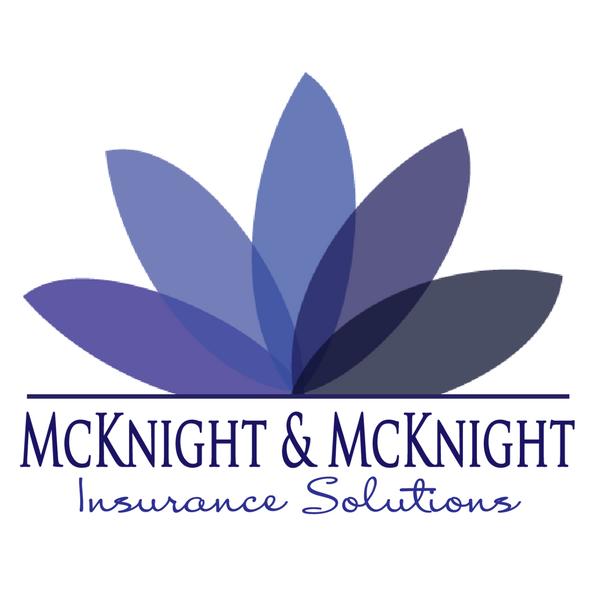In today’s digital age, health insurance fraud and scams are becoming increasingly sophisticated and prevalent. As fraudsters develop new tactics to deceive and exploit, it’s important to stay vigilant and informed about how to protect yourself from falling victim to these schemes.
Always remember, if you’re ever unsure about a call or any attempt to contact you regarding your health insurance, don’t hesitate to reach out to us. Our agents at McKnight & McKnight Insurance Solutions are here to help you navigate through any uncertainties.
Common Health Insurance Scam Tactics
When it comes to unsolicited phone calls or emails concerning your health insurance there are some red flags to watch for:
- Unverified Contact: Be cautious if you receive communication from an unknown number or email address. Scammers often use fake credentials or pretend to be from legitimate organizations.
- Urgency and Pressure: Fraudsters often create a sense of urgency, pressuring you to act quickly to avoid losing coverage or benefits. Legitimate agencies will not rush you into decisions.
- Requests for Personal Information: Never provide personal details, such as your Social Security number or banking information, unless you are certain of the identity of the caller or sender. Insurance companies rarely request sensitive information over the phone or email.
- Promising Unrealistic Benefits: Be skeptical of offers that seem too good to be true, such as extremely low premiums or comprehensive coverage for an unusually low price.
- Suspicious Links or Attachments: Be wary of clicking on links or opening attachments in unsolicited emails. These can be a gateway for malware or phishing attempts.
- Inconsistent Information: If the information or terminology used seems inconsistent with what you know about your insurance provider, it could be a scam.
Remember, if you ever feel unsure about the legitimacy of a call or email, it’s best to let it go to voicemail or disregard the email until you verify the source. And always, reach out to our experts at McKnight & McKnight for confirmation and advice. We are here to help you stay protected.
Protecting Your Personal Information
Your personal information is precious, and safeguarding it is important to protect yourself from medical insurance scams. Start by being vigilant about the information you share online and with whom you share it. Always verify that you are communicating with reputable and known sources before divulging any personal details.
Use strong, unique passwords for your accounts and update them regularly. Consider employing multi-factor authentication for an added layer of security. Avoid using public Wi-Fi networks when accessing sensitive information; but if you must, use a trusted virtual private network (VPN) to encrypt your data.
Be cautious of unsolicited requests for personal information. Legitimate organizations will not ask for sensitive details through unsecured channels such as email or phone calls. If you receive such a request, do not respond directly; instead, contact the organization using verified contact information to confirm the inquiry’s legitimacy.
Regularly review your medical and insurance statements for any unfamiliar charges or activities. Keeping an eye out for discrepancies can help quickly identify potential fraud. If you find anything suspicious, report it immediately to your insurance provider and the relevant authorities.
Special Considerations for Older Adults
Older adults are often prime targets for health insurance scams, mainly due to their reliance on Medicare and Medicaid services. Scammers may exploit their trust and confusion over complex insurance details.
If you are a senior or want to help protect a loved one, consider these tips:
- Trust But Verify: Always verify the identity of the caller. Legitimate agencies, like Medicare or Medicaid, will never ask for sensitive information over the phone.
- Guard Health Information: Remind seniors never to share their Medicare number or personal health information unless they’re sure of who they’re dealing with.
- Monitor Claims: Regularly review Medicare Summary Notices (MSNs) for any unusual or unrecognized services or charges. Contact Medicare immediately if something looks suspicious.
- Education: Educate older adults about common scam tactics such as unsolicited calls, emails, or visits. Awareness can significantly reduce the risk of falling victim to fraud.
- Seek Trusted Advice: Encourage senior clients to reach out to us at McKnight & McKnight if they’re unsure about any communication they receive. Our team of experts is always available to provide guidance and support.
Remember: Promptly report any suspected fraud to authorities, so measures can be taken to safeguard against these scams.
“I highly recommend McKnight & McKnight. They are very knowledgeable and keep themselves up-to-date on any changes that take place. They are honest and upfront. They are committed to doing the best that they can for their clientele.”
-Debbie
Avoid Health Insurance Scams
Staying vigilant against health insurance fraud is more important than ever. If you’re uncertain about any call or contact you receive regarding your coverage, don’t hesitate to let it go to voicemail and reach out to us for verification.
Your peace of mind is our top priority, and we’re committed to helping you navigate any uncertainties. Let us be your trusted guide in safeguarding your healthcare coverage. Together, we can ensure that you and your loved ones are protected every step of the way. Contact us today!

